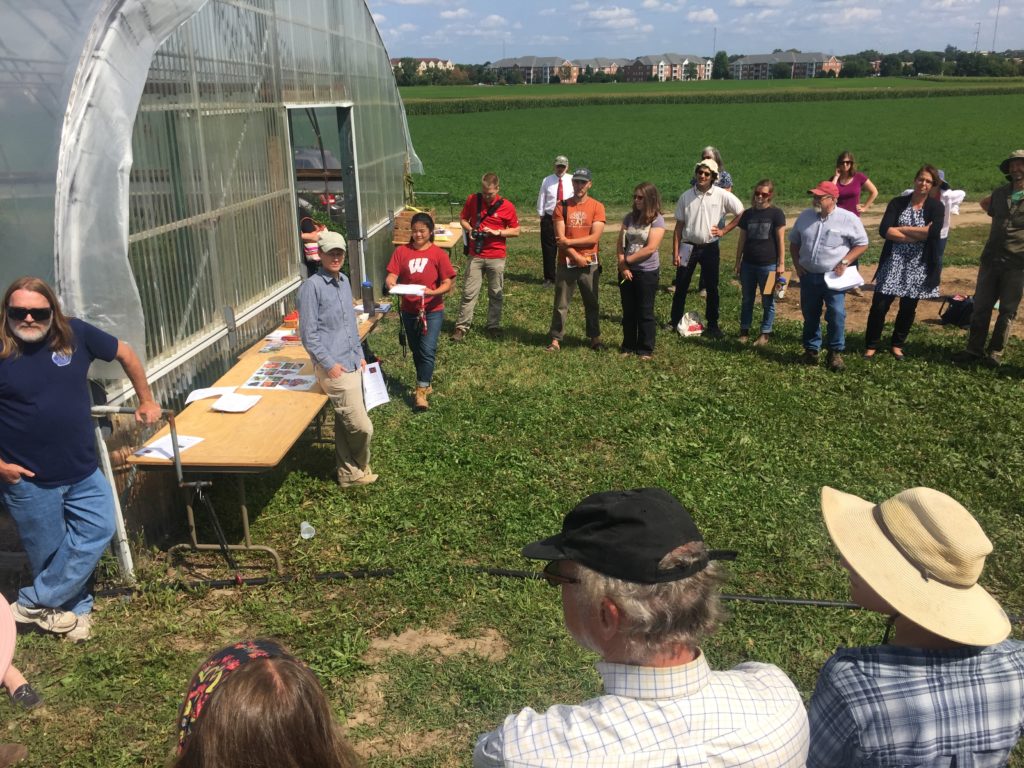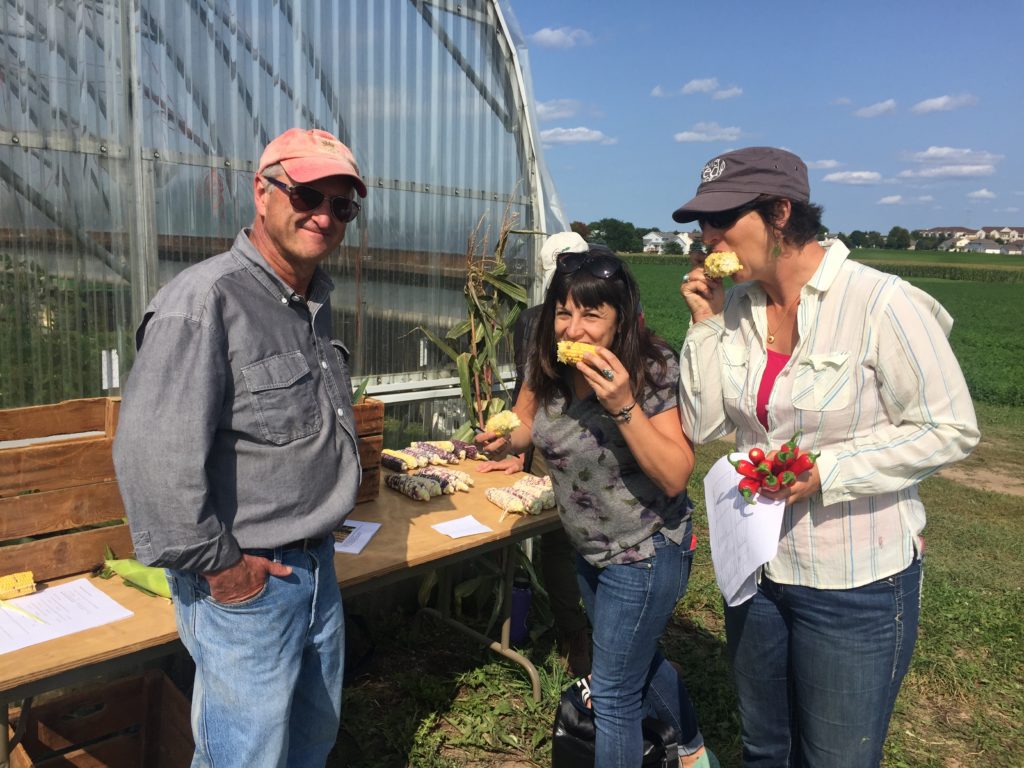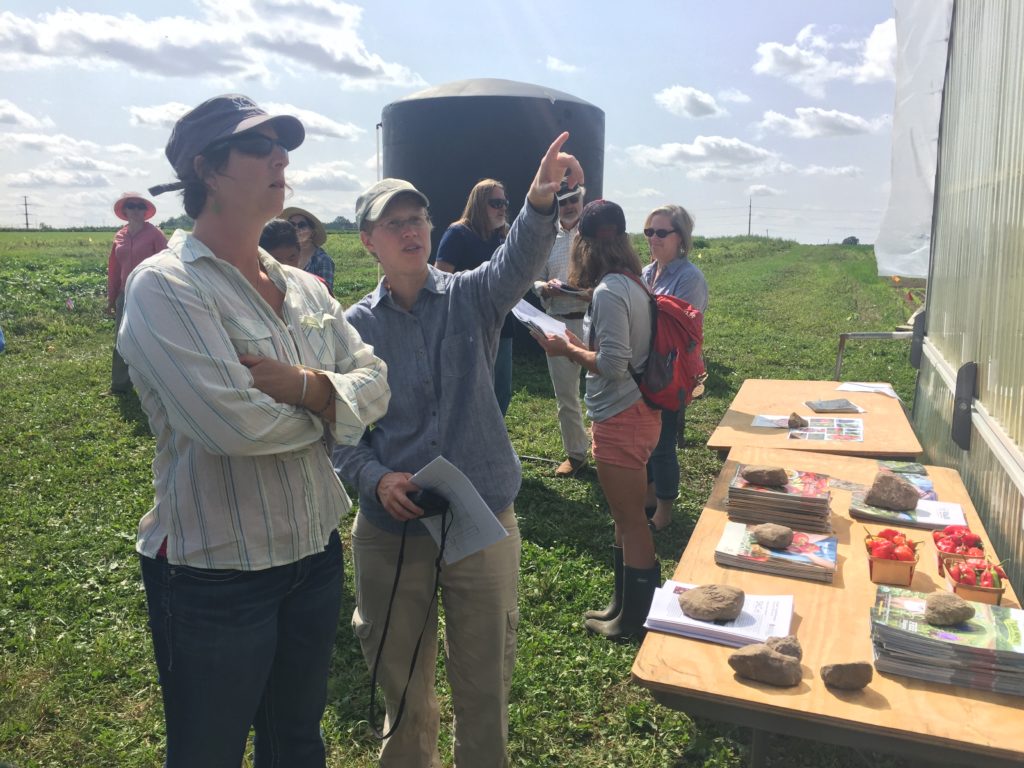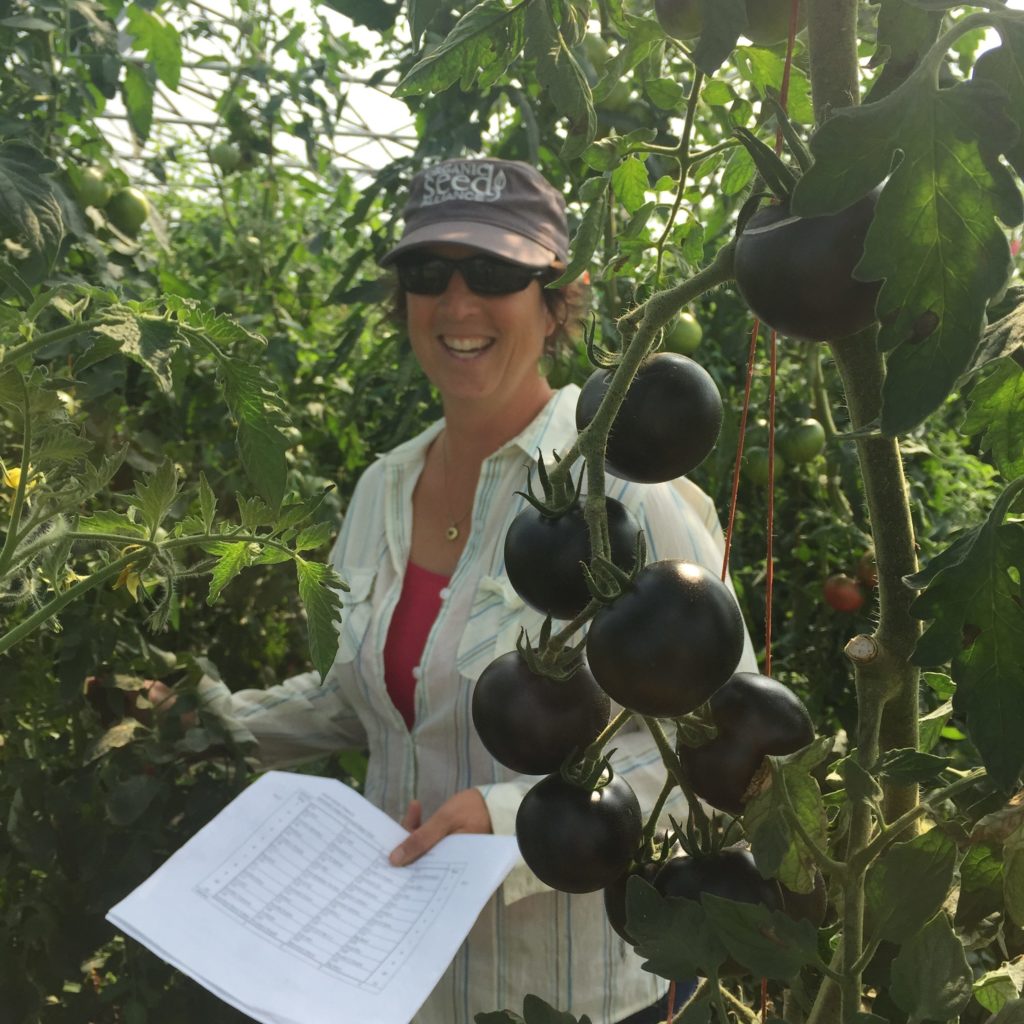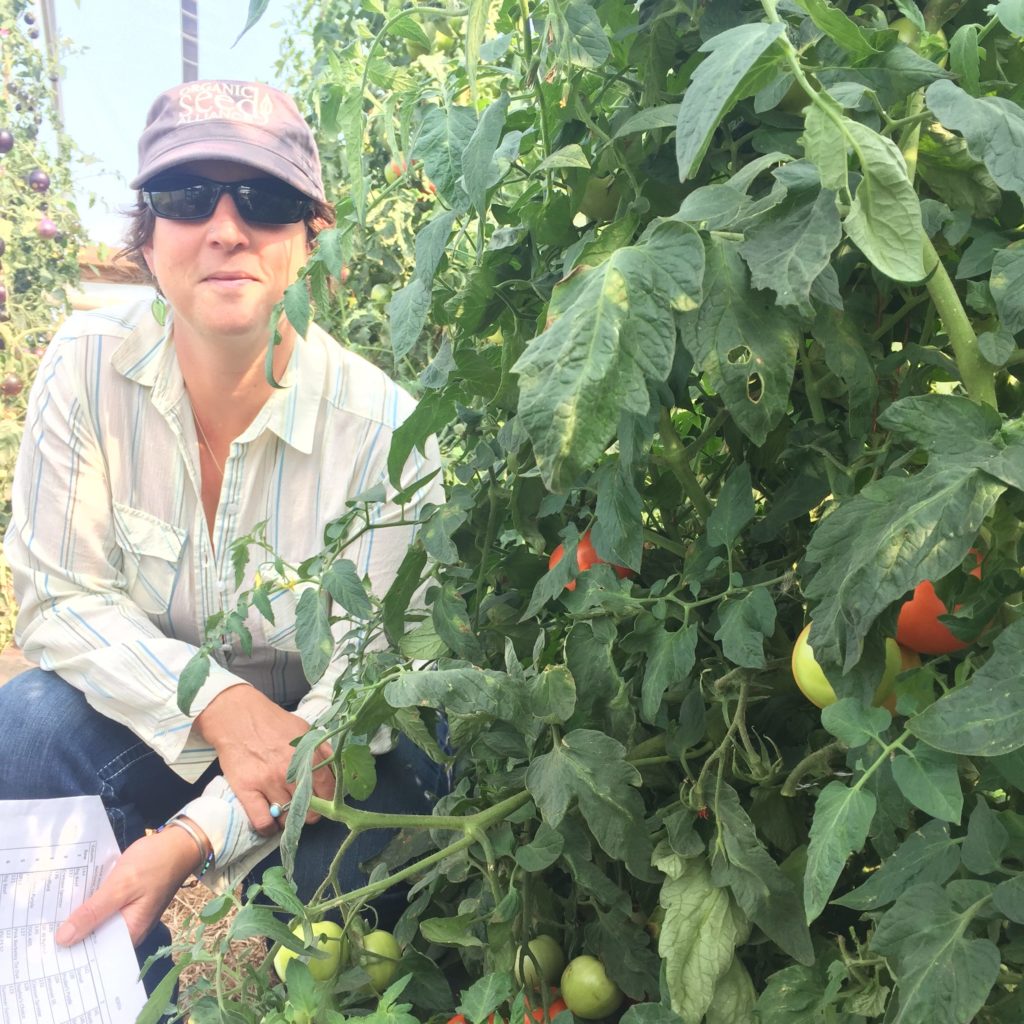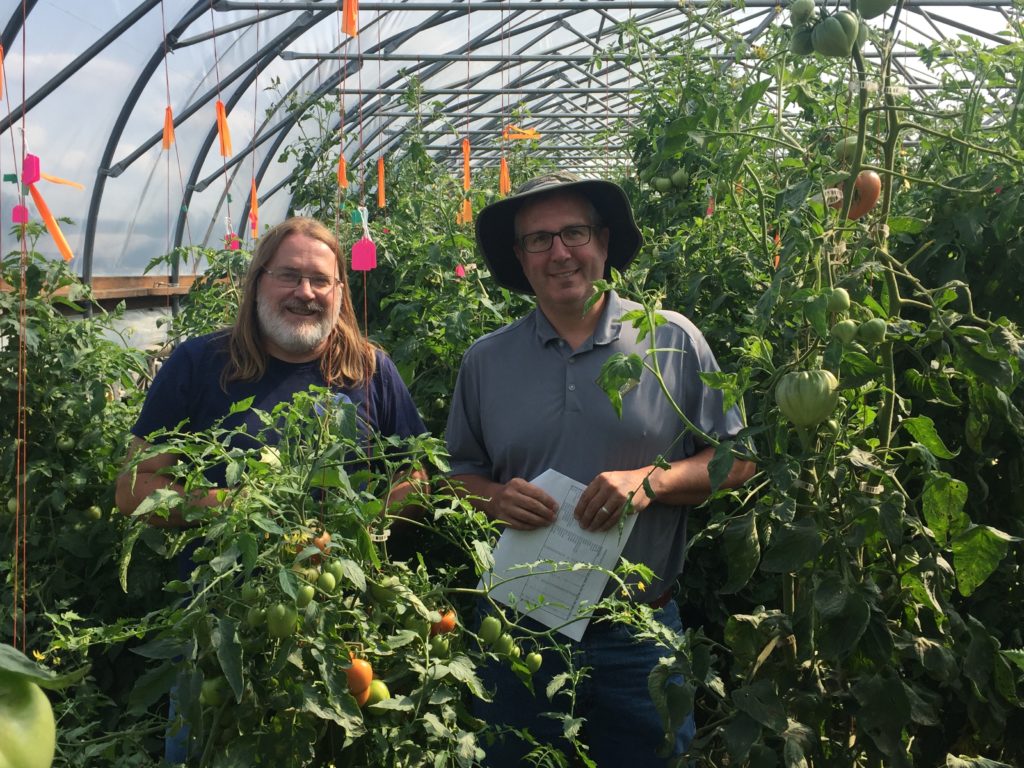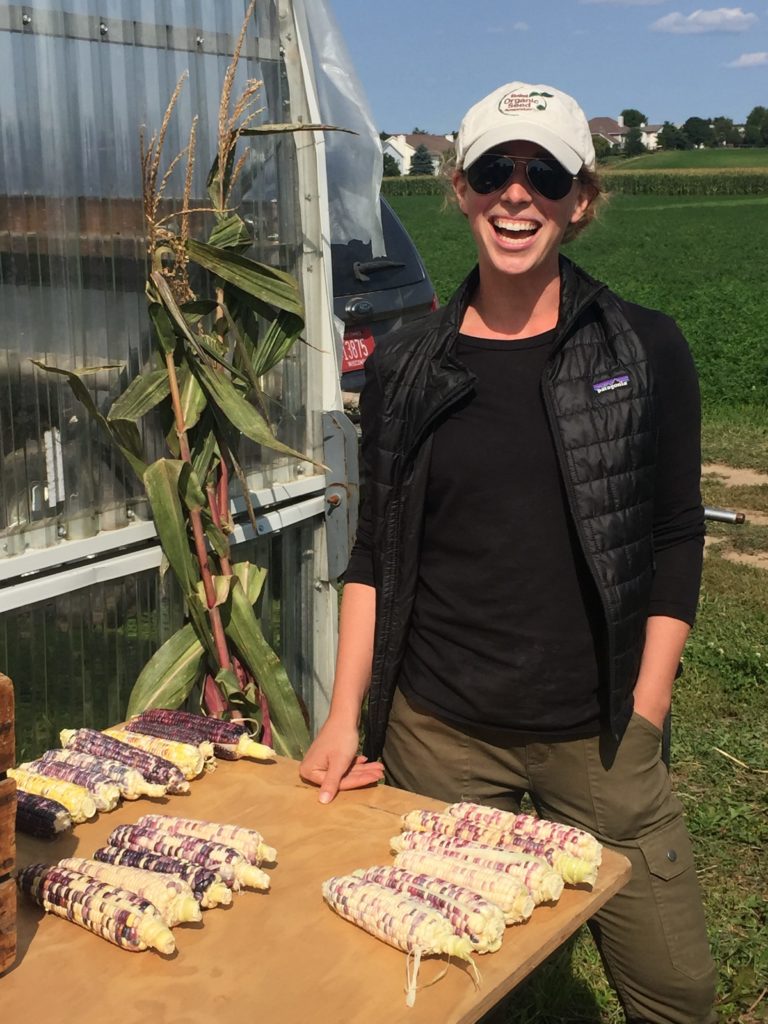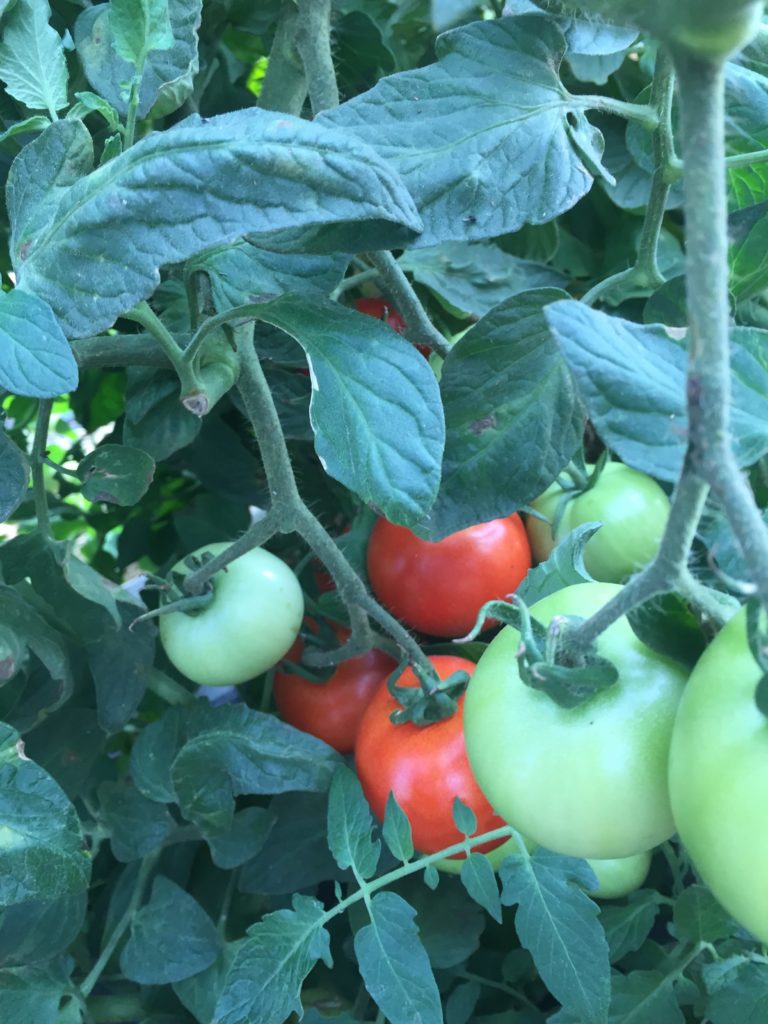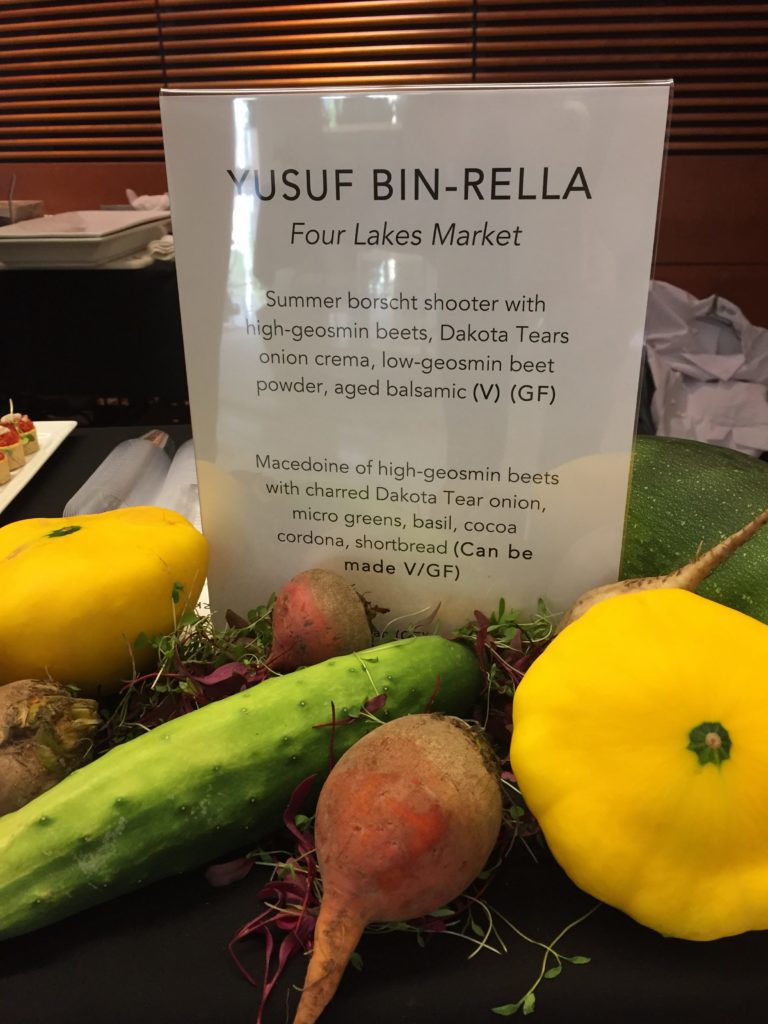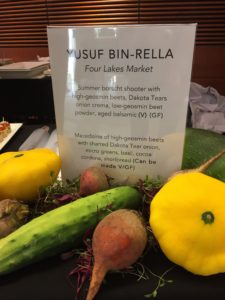
Farmers, plant breeders, seed companies, and other agriculturalists gathered last week in Madison for a tour of field trials hosted by the Seed to Kitchen Collaborative, a program developed by Dr. Julie Dawson at the University of Wisconsin – Madison. The Collaborative connects plant breeders focused on organic system to Wisconsin farmers and chefs to create delicious, well-adapted vegetable varieties for local, organic production. Partners in the Collaborative work to develop new varieties of vegetables while also conducting trials of existing commercial varieties developed by independent breeders, public breeders, and organic seed companies.
Last week’s event allowed participants to visit trials featuring a number of crops, including beets, cabbages, carrots, corn, melons, onions, peppers, squash, and tomatoes. The beet varieties are part of a project led by UW-Madison breeder Irwin Goldman while the other crops featured are part of three OREI-funded projects: the Carrot Improvement for Organic Agriculture (CIOA) project, the Tomato Organic Management and Improvement (TOMI) project, and the Northern Organic Vegetable Improvement Collaborative (NOVIC).
Keith Mueller of KC Tomatoes and Aaron Whaley of AP Whaley Seeds were two independent breeders present to evaluate their own varieties and discuss them with participants. Organic seed companies in attendance included Vitalis Organic Seeds, Johnny’s Selected Seeds, High Mowing Organic Seeds, Adaptive Seeds, and Seed Savers Exchange.
After participants worked up an appetite walking the fields they enjoyed an evening celebrating the harvest with a Seed to Kitchen tasting dinner prepared by regional chefs and featuring the crops in field trials. The OSA-bred TOMI varieties ranked high in a tomato tasting along with yellow varieties from KC Tomatoes and rich red slicers from other organic breeders. UW-Madison graduate student Solveig Hanson educated tasters about the elusive, earthy flavor quality called “geosmin” in beets. CIOA carrot breeder Dr. Phil Simon from UW-Madison enjoyed sampling sweet roasted purple, yellow and red carrots from his program. The evening closed with an inspirational keynote from Lane Selman, Director of the Culinary Breeding Network. Lane shared stories describing new varieties that grew out of relationships built between farmers, chefs, and breeders who convened over the years in the field and kitchen. Participants left with full bellies and ideas for developing the culinary varieties of the future.
